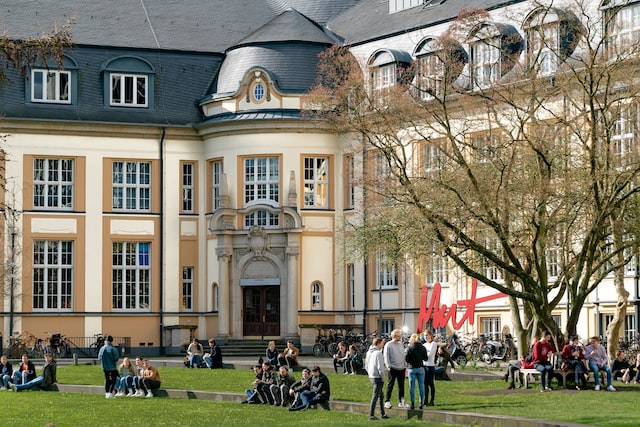As a public school teacher, I often get asked by parents why they should send their children to private school. There are a few reasons why people choose private schools for their kids, and I wanted to share some of the most common ones with you. Keep in mind that each family is different, and what works for one may not work for another. But if you’re considering sending your child to private school, these are a few things to keep in mind.
The high cost of tuition is the main reason why people send their kids to private school
The high cost of tuition is one of the main motivations for parents to send their kids to private school. In recent years, many have found that the expense associated with even the most basic private schools has skyrocketed, making it difficult to secure a quality education without paying a hefty price tag. However, many parents are willing and able to make this investment as they believe that their children will be able to take advantage of superior learning opportunities and benefit from more individualized attention in a smaller classroom setting. The expensive cost of tuition is an obstacle for some, but many believe the rewards from investing in private schooling are priceless.
Private schools offer smaller class sizes and more individualized attention
Private schools are an attractive option for parents of school-age children due to their ability to offer personalization, something that many public schools may not be able to provide. These advantages come in the form of smaller class sizes, which allow teachers to provide more individualized attention to each student and tailor instruction according to specific needs. Additionally, private schools often have a lower student-teacher ratio than their public counterparts, giving children access to closer mentorship opportunities from faculty members, making it easier for students to receive help and progress at their own pace. By granting parents the chance to give their children the personalized education they deserve, private schools remain popular amongst families around the world.
Private schools often have more experienced and qualified teachers
With private schools often having more resources than their public school counterparts, educational quality can be improved by bringing in experienced and qualified teachers. Not only do these teachers possess the necessary skills and qualifications from educational institutions, but also from years of experience. This combination makes them well-equipped to teach students of all abilities; they are able to use different techniques to ensure that all students reach their maximum potential. Private schools may have higher costs associated with tuition fees, but the value that comes with having experienced and qualified teachers is invaluable.
Private schools typically have better resources and facilities than public schools
Private schools often receive more funding than public schools, and this funding reflects in their resources and facilities. Private school classrooms typically have more up to date technology, smaller class sizes and updated textbooks. Furthermore, private schools are often able to offer additional extracurricular activities such as sports teams, after-school art classes or debate club. By contrast, public school resources may be stretched thin and not meet the same quality standards. In some locations, public schools even face dwindling supplies of basic school necessities like pencils and paper. Ultimately, private schools have access to better resources and facilities that can sometimes mean a more well-rounded education for students.
Many private schools offer a religious education, which some families value
Families that value a religious education often turn to private schools in order to provide their children with this upbringing. From lessons on the bible, Islamic scripture, and other religious texts to courses about different religious denominations, students at many private schools receive an offering tailored to their faith. In addition to giving students access to spiritual guidance from teachers, staff, and peers with similar spiritual values, these schools also provide extensive extra-curricular activities such as prayer groups and trips abroad for holy days or pilgrimages. With the options for an education focused upon religion available at these private campuses, many families are guaranteed peace of mind when it comes to educating their offspring spiritually.
Some parents believe that private school will help their children get into a good college
The college admissions process can be an intimidating challenge for many students and their parents. With the competition to get into prestigious universities becoming increasingly stiff, some parents are turning to private school as a way to bolster their children’s chances. Private schools offer smaller classrooms and a more personalized approach that can help prepare students for college and better equip them with the skills they need to succeed. Private schools may also be able to provide access to more resources, knowledgeable instructors and other benefits that will help create a strong foundation for higher education. For these reasons, it is hardly surprising that many parents believe that private school can have an overwhelmingly positive impact when it comes to helping children get into good colleges.
In the end, parents need to decide what is best for their child and their family. They should also consider what they can afford. There are benefits and drawbacks to both public and private schools. It is important to do your research before making a decision. Have you send your children to private school? Would you recommend it? Why or why not?
